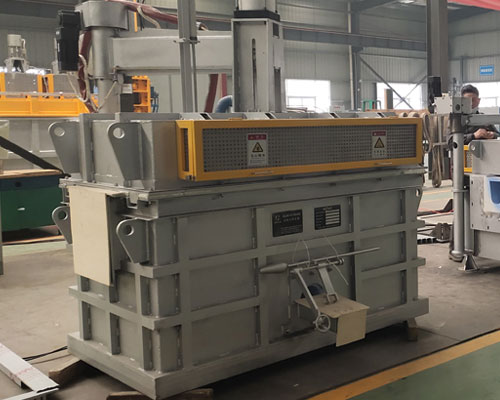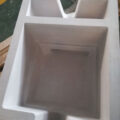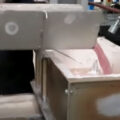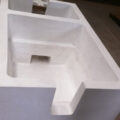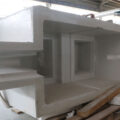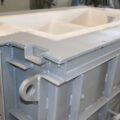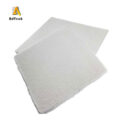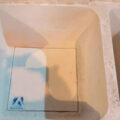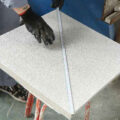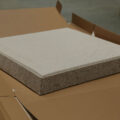For the processing of molten metal, it is necessary to remove foreign intermetallic inclusions, such as impurities in raw materials, slag, scum, and oxide formed on the surface of the melt. Removal of these inclusions will form a uniform melt, thereby ensuring the high quality of the product, especially in the casting of steel, iron, and aluminum. Currently, ceramic foam filter device is widely used due to their ability to withstand extreme thermal shocks, their resistance to chemical corrosion and their resistance to mechanical stress.
The ceramic foam filter plate is a key part of the molten aluminum filter device. It can meet the production requirements of high-tech and high-performance aluminum alloy precision casting. The ceramic foam filter is made of alumina, and the ceramic foam filter maintains its high strength and excellent resistance to chemical abrasion of castings. The network of pores in the filter provides a larger surface area for inclusions retention. The filter size ranges from 9, 12, 15 to 26 inches, and the pore size is 20 to 60 PPI. For high cleanliness requirements, a double filter with two pores can be used.
The open cell ceramic foam filter device is used for metal filtration purposes. The production of such ceramic filter devices usually involves mixing ceramic powder with a suitable organic binder and water to prepare a paste or slurry. The slurry is used to impregnate polyurethane foam, which is then dried and fired in the temperature range of 1000 to 1700°C. Through this treatment, combustible materials are burned off during the sintering process to produce a porous body.
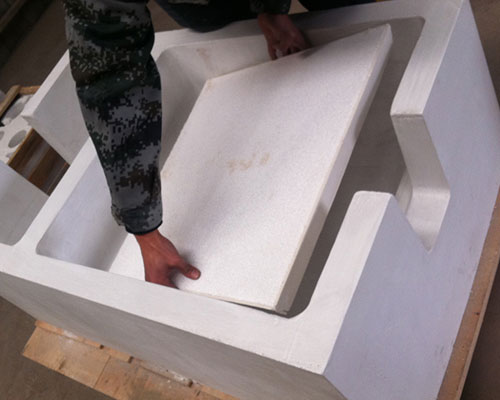
A filter with improved strength by adding ceramic fibers to the slurry. Phosphate-bonded alumina filters have been used for aluminum filtration. The filter is obtained by impregnating the foam with a slurry containing ceramic particles (preferably Al 2 O 3) and a binder. The adhesive is an aluminum phosphate adhesive.
Fiber contributes to the significant improvement of the performance of the filter device, can improve the mechanical strength and rigidity, obtain higher impact resistance and better thermal shock, improve the filtering capacity, better mechanical integrity and reduce the pollution of castings. Since phosphate-bonded carbon and fiber have excellent mechanical strength at high temperatures, they will not soften or bend during the metal casting process. This helps to form cleaner metal castings.

